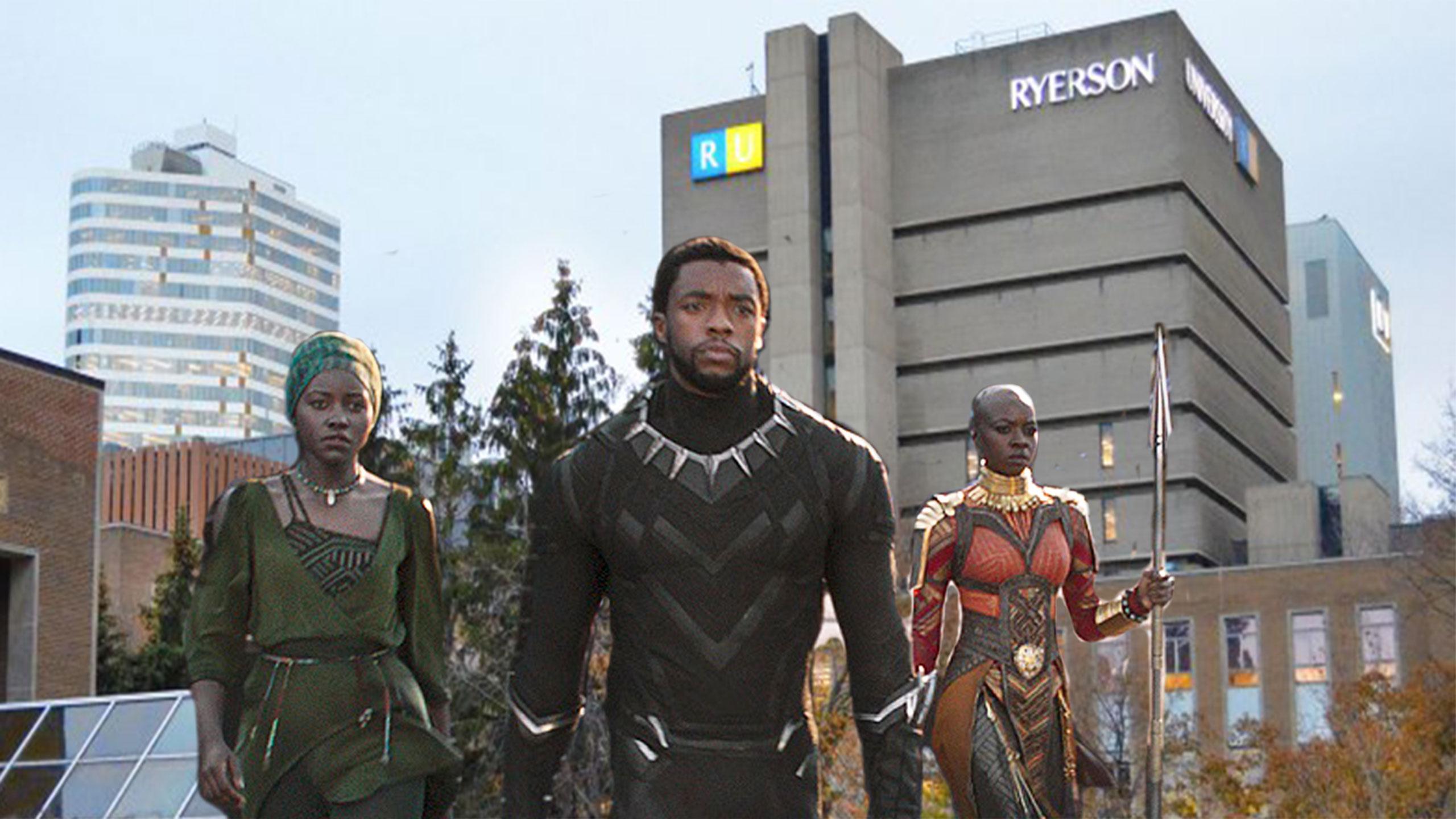By Kamille Coppin
I remember my mother looking my two older brothers in the eyes and saying: “A Black man in our society is only thought to be good for three things dribbling, running and shooting.”
She wasn’t trying to demean their character. She was preparing them for the daily battles they would face in a white man’s world.
It was reinforced when they would turn on the TV—the representations of successful Black men were limited to basketball players, rappers and football players.
There were no fantastic superheroes in mainstream media they saw themselves in. They were not awarded the privilege, as little white children were, of believing they were capable of the impossible within their culture. They were awarded three options.
The highly anticipated Marvel movie The Black Panther finally hit theatres this past week and the response has been overwhelming elation from the Black community. In the famous words of Solange Knowles, ‘this shit is for us’.
These #BlackPanther moviegoers slayed in their African-inspired outfits: https://t.co/3NAkFGsk1y ⚡ pic.twitter.com/wxQ1Hxiz6c
— iHeartRadio (@iHeartRadio) February 20, 2018
In a political climate where Black people across the African diaspora are constantly fighting to be seen, listened to and understood, Black Panther offers more than an escape for two hours and 15 minutes. It offers the Black community an authentic representation of what it means to be unapologetically Black in 2018. Students at Ryerson are feeling the effects of positive representation, and it’s had an effect on their fashion.
Social movements are always accompanied by branding or uniform. The hippies during the peace movement had peace signs and stylized clothing, the Black panthers in the civil rights movement iconically wore black and leather.
Today the Black Panther movie, not to be confused with the Black Panther movement, has sparked an inspired people around the world to not only wear traditional African garb to the movie but in everyday situations.
Assistant Professor at Ryerson University’s fashion communication program, Henry Navarro wrote in his most recent article “Black Panther: Honouring the legacy of Black style” that the use of clothing as a political symbol is what conjoins such widespread movements.
“For social groups that can’t access institutionalized forms of creative expression, dress and personal style often become a form of political and cultural broadcasting. The immediacy of clothing and its perceived lack of pretension provides a visible and versatile canvas. For North American Black communities, style can also connect them to a cultural continuum that stretches all the way to Africa.” Navarro wrote.
Ryerson humanities student Samantha Felix said the entire film gave her an accurate reflection of the Black experience today.
“I find validation in the resilience of the Black peoples and the culture in the Wakanda world despite [Wakanda] having to be hidden and often subjugated in dominant narrative of white/European history”
The Marvel world of Wakanda in many ways mimics the hidden idea of Black consciousness. The strength of the people come from the secret superhero world of Wakanda. However, that version of Wakanda cannot be known to western society because it would not be able to function.
The Black Panther world of Wakanda is able to question and analyze current issues in a way only a fantasy world could without losing the seriousness of reality. Ricky Diankulu, 25, says the themes in the movie emphasized how important it is for Black communities to be connected.
“The representation of Blackness in the movie shows me that as Black people we are stronger united compared to being divided.”
The cultural dress displayed in the movie has become a transcending message that reaches beyond the Marvel universe to resonate in the real world. Countless dashiki’s are adorning the backs of Black people around the world like an armour infused with the history and resilience of their ancestors.
Second-year Ryerson student, Tiffany Mongu said that seeing others in their dashiki’s before seeing the movie created a strong sense of connection and pride.
“I felt so powerful and was like I am that Black woman who can do anything and everything because I know what I am capable of, no matter what society would ever do to bring me down I have those superpowers to make anything come into realization.”













Leave a Reply